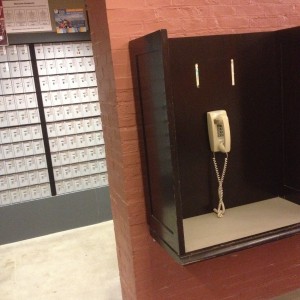It’s the first thing you have to do before you really start that research paper: nail down the thesis. After reading a few articles and narrowing down your focus, you’ve come up with a general idea for your argument, which is an important first step. However, until that idea is packaged in a strong and shiny statement, your paper has likely reached an impasse.
Of course, the thesis results from first asking a research question, trying to explain some phenomenon you’ve observed. The goal is to answer the question innovatively and assertively, advancing something both original and powerful enough to change the debate on an issue.
But who said questions have to be rhetorical?
When I’ve settled on a topic but haven’t advanced past the thesis-planning stage, I like to ask my question out loud — so I give my sisters a call. Both are graduate students, one in library and information science and the other in education, so their responses are a good way to test my ideas. I know I’m ready to seriously start writing if they both recognize the goal of my argument.

That doesn’t mean I want my sisters to always agree with me. In fact, the opposite can be much more useful (and is, admittedly, much more common). A classic example: asking my oldest sister “Would you accept that Jersey Shore represents a modern version of the American frontier myth?” made her question more than just my thesis. But by being forced to defend my idea, not only was I sure of its innovativeness (proving the argument is worth pursuing), but I was also compelled to assess its assertiveness (focusing on strong arguments to change my sister’s — and other’s — minds). After our conversation, I polished my idea about Jersey Shore into a solid thesis, comparing the reality show members’ primary motivation to that of traditional frontiersmen. The result, as you can imagine, was an engaging, argumentative essay.
Maybe your paper topic is not quite as controversial (or related to reality TV). But every research question needs an audience, and I’m lucky that my family is willing to sit front-row. Your family, friends, classmates, or even professors can do the same: ask them to consider your ideas, and evaluate what their response means for the development of your argument. These simple conversations leave you more prepared to finalize your thesis, and write for a global audience to consider your question themselves.
– Melissa Parnagian, Social Sciences Correspondent

